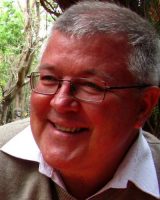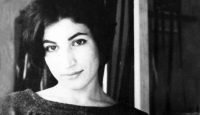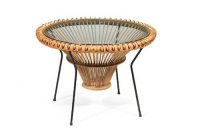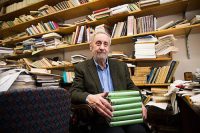August 2, 2018
Edited by David Sanders
Specimen Days
1632—Kaspar von Stieler, German poet (Teutsche Wolredner), is born.
1858—William Watson, British poet (Prince’s Quest, Father of Forest), is born.
1867—Ernest C Dowson, British poet, is born.
1941—Jose Juan Tablada, Mexican poet (el Florilegio), dies at 70.
1955—Wallace Stevens, US poet/writer (Owl’s Clover), dies at 75.
1972—Helen Hoyt, American poet (b. 1887), dies.
1988—Raymond Carver, poet/short story writer (Furious Season), dies at 50.

Of the Surface of Things
I
In my room, the world is beyond my understanding;
But when I walk I see that it consists of three or four hills and a cloud.
II
From my balcony, I survey the yellow air,
Reading where I have written,
“The spring is like a belle undressing.”
III
The gold tree is blue,
The singer has pulled his cloak over his head.
The moon is in the folds of the cloak.
—Wallace Stevens
“The gold tree is blue” – Wallace Stevens
World Poetry
Egypt: UN Rights Experts Urge Release of Poet/Songwriter
UN human rights experts* have urged Egyptian authorities to release poet Galal El Behairy, who has been detained since February for writing a song critical of government policies.
‘Genius’ Atukwei Okai Was a Unique Poet – Mahama

Former President John Dramani Mahama has eulogized the late Professor Atukwei Okai, describing him as a genius and a unique oral poet. Prof. Okai passed away on Friday after a short illness at the Korle Bu Teaching Hospital. The former President in a statement said Prof. Okai will be remembered as “a genius whose musical poetry was not only spectacular in imagery and clever wordplay, but also natural in how it captured the cadences and rhythm of speech.”
Afrikaans Poet Gunned Down

Afrikaans poet and author Tom Gouws was gunned down at his home in the east of Pretoria during a house robbery last night. The incident took place at around 20:00 at the Tieger Valley country estate in the east of Pretoria, said police spokesperson Warrant Officer Johan van Dyk. He said Gouws had just returned home with his wife, Retha Gouws, and their 17-year-old son when the shooting happened.
China is Trying to Muzzle Gui Minhai. These Poems Tell His Story
Gui Minhai, a Chinese-born Swedish citizen, was riding a train from Shanghai to Beijing in the company of two Swedish diplomats in January when 10 Chinese plainclothesmen stormed aboard, lifted him up and carried him off the train and out of sight.Three weeks later, Gui was paraded before Chinese media to recite a bizarre and apparently coerced confession. He hasn’t been heard from since.
Afrikaans poet Tom Gouws was gunned down at his home in the east of Pretoria during a house robbery last night.
Recent Reviews
Funks of Ambivalence: On Flarf
by Andrew Epstein
“A protest poetry intended to induce funks of ambivalence.” That phrase appears in Stan Apps’s “Free Dolphin Radio,” the opening poem of Flarf: An Anthology of Flarf. While its placement may have been fortuitous (given the book’s alphabetical arrangement by author), it seems a fitting motto for the entire collection, as well as for the movement the book presents as a whole. “Flarf” refers to a self-styled avant-garde collective that sprung up around 2000 and was devoted to exploring the web, then in its “wild west” phase, as a resource for making poetry.
The Poem by Don Paterson: By turns dotty, unreadable, ingenious
by Michael O’Loughlin
Even for poets – perhaps especially for poets – the act of poetry remains a mystery. Or an enigma, to use Paterson’s preferred term. Human nature being what it is, poets have always attempted to eat their own faces and get to the bottom of it. Homer and his contemporaries came up with the Muses, and his successors have looked for solutions to the enigma in the prevailing thought clouds of their times, from Dante (theology) to Coleridge (German philosophy), Yeats (mysticism) and Robert Graves (mythology). Don Paterson, like many contemporary poets (and I cannot exclude myself here) has a weakness for highfalutin linguistic theory, with a bit of cognitive science thrown in, and it is here that he seeks, over the course of more than 700 pages, if not a solution then at least some useful insights into the enigma.
“A protest poetry intended to induce funks of ambivalence.” – Stan Apps
Broadsides
Why the Poet Dareen Tatour Was Convicted of Incitement
by Yoav Haifawi
On May 3, 2018, exactly two and a half years after the indictment was filed against her, Dareen Tatour, a Palestinian poet from Reineh in the Galilee, was convicted of three counts of “incitement to violence”. For one of the three publications she was also convicted of “supporting a terrorist organization”.
Is There a Good Way to Translate Chinese Poetry?
by Xujun Eberlein
A well-known contemporary Chinese poet, Han Dong, when interviewed by his English translator, said: “If your poems don’t stand up to translation into another language, then why should the translator continue to be loyal to the original? If those poems can shine in another language, then why worry if they have departed from the original?”
The Legendary Iranian Poet Who Gave Me Hope
by Jasmin Darznik

I grew up in a house with very few books, but there was one that came with my family from Iran and never let me go: a slender, battered book of poetry my mother displayed on the mantle, next to photographs of our family and the country we’d been forced to flee. The cover showed a woman with kohl-lined eyes and bobbed hair, and the Persian script slanted upwards, as if in flight from the page. That book wasn’t an object or even an artifact but an atmosphere. Parting the pages released a sharp, acrid scent that was the very scent of Iran, which was also the scent of time, love, and loss. I wouldn’t know this for a long time, but Forugh Farrokhzad, the author of that book, died in a car crash eleven years before my family left Iran for America.
Forugh Farrokhzad is a legendary Iranian poet.
Drafts & Fragments
Sylvia’s Table
by David Trinidad

On December 10, 1962, Sylvia Plath moved from Court Green, her home in Devon, England, to a flat at 23 Fitzroy Road in London. That she had been able to rent this particular flat had great significance for her, as one of her idols, W.B. Yeats, had once lived there. The following day, December 11, Plath purchased furniture for her new residence. At Selfridges department store she bought two chairs, a table, and several bar stools. According to her checkbook stub,* she paid £19:1:0 for these items, roughly 394 pounds by today’s inflation rate, or 520 US dollars. The furniture was delivered within ten days.
On December 10, 1962, Sylvia Plath moved from Court Green, her home in Devon, England, to a flat at 23 Fitzroy Road.
Poetry In the News
‘Extraordinary’ Eyewear Contracts ‘Interfere with poets’ civil rights’

Independent press Eyewear Publishing has drawn criticism from the Society of Authors (SoA) over its treatment of poets, including contracts “constituting an unwarranted interference with their civil rights”. Poets have complained about some of the London-based press Eyewear’s contracts, seen in full by The Bookseller, demanding its authors not engage with the SoA which it said was “biased against small press publishing and unduly aggressive”. The publisher has been running since 2012 under founder Todd Swift and has published poets such as Pulitzer Prize-winner Paul Muldoon, A K Blakemore and Kimiko Hahn, distributing in the UK and the US.
Nation Apologizes for Poem
A short poem posted by the Nation now has an apology longer than the poem posted above it. And one top publishing insider summed up: “If you wrote this all up as a satirical novel, no one would believe it.” The magazine’s poetry editors, Stephanie Burt and Carmen Giménez Smith, have added above the poem: “We made a serious mistake by choosing to publish the poem ‘How-To.’ We are sorry for the pain we have caused to the many communities affected by this poem.”
Independent press Eyewear Publishing has drawn criticism from the Society of Authors over its treatment of poets.
New Books
Thicket by Cate Peebles
[Paperback] Lost Roads Publishers, 75 pp., $15.00

“What a masterful, mysterious first book. I love these poems for their totally clear, dream-like permeability. I am particularly blown away by the long poem that anchors the book, ‘The Woodlands,’ which has an extraordinary, tender wildness: it reminds me of my favorite surrealist novels, while also managing somehow to be deeply personal. I look forward to reading these poems, again and again, with growing admiration and joy.”—Matthew Zapruder
Surge by Etel Adnan
[Paperback] Nightboat, 56 pp., $12.95
A new volume of aphoristic prose and philosophical poetry from Etel Adnan, whose work The New York Times recently described as the “meditative heir to Nietzsche’s aphorisms, Rilke’s Book of Hours and the verses of Sufi mysticism.” She writes: “Reality is messianic/apocalyptic/ my soul is my terror.”
Image of Absence by Jeannette L. Clariond, translated by Curtis Bauer
[Paperback] The Word Works, 140 pp., $20.00

Says Jean Valentine, winner of the 2008 Wallace Stevens Award, and the 2017 Bollingen Prize, “Reading Image of Absence, how little I know, how deeply at home I feel in Clariond’s intimate strangeness, like finding again a deep friend from another life. I am grateful she offers, in absence, an overnight home place, or a half-hour refuge, waiting for us who wait. I don’t know Spanish, so my gratitude for Curtis Bauer’s translation, and for the blessing of his Translator’s Introduction, is boundless.”
Remembrance of Water & Twenty-Five Trees by John Taylor
[Paperback] The Bitter Oleander Press, 112 pp., $21.00
The poetic sequences in this book have all stemmed from collaborative projects with the French artist Caroline François-Rubino. As with our earlier books, sometimes a sequence of poems has stimulated a series of drawings; at other times, it is a series of paintings that has provoked poetic responses. Moreover, some of our joint efforts originally appear in unusual handmade forms. A few poems in this book were first used, alongside an ink drawing or a watercolor painting by the artist, as livres pauvres, an international project conceived by Daniel Leuwers and associated with a special collection at the Pierre de Ronsard House near Tours. As to the sequence Remembrance of Water, it was conceived as a livre unique, in other words a single book consisting of both poems and original drawings.
What Happens Next by George Ovitt
[Paperback] Cervena Barva Press, 69 pp., $17.00

“The poems in What Happens Next allow us to enter the patience and calm of a poet who expresses himself after long listening, creating a welcome intimacy and a sense of life considered and savored. Natural as their diction, unforced, these poems create clarity even when looking out at a chaotic world.”—Kim Garcia
The poems in What Happens Next allow us to enter the calm of a poet who expresses himself after long listening.
Correspondences
Historical Fidelity: Margaret Randall on Translating Cuban Poetry
by Harris Feinsod
During and after the Cuban Revolution, many US poets and artists who came of age in the Lower East Side art and poetry scene of the 1950s went on to express sympathies for the Latin American political left. Yet, only a few went beyond faddish appropriations of revolutionary style in order to sustain a literary culture of deep transnational social commitments. One such figure is Margaret Randall (b. 1936), whose remarkable six decades of work as a poet, translator, editor, activist, and scholar include her direction of the renowned bilingual literary magazine El Corno Emplumado (The Plumed Horn, 1962–1969), founded with her then-husband Sergio Mondragón in Mexico City, where the Mexican student movements left profound marks on her political outlook.
Translating Nine Pounds of Poetry
by Jill Radsken

Stephen Owen doesn’t understate the intellectual stamina required to maintain a healthy relationship with the Chinese poet Du Fu.“If you’ve got to be stuck with someone for eight years, you want it to be someone you enjoy, who can sustain your interest,” said the James Bryant Conant University Professor at Harvard, who recently published “The Poetry of Du Fu,” the first complete English translation of the great Tang dynasty literary figure. A monumental undertaking (the prolific Du Fu left 1,400 extant poems), Owen spent nearly a decade working on the translation, which resulted in a 3,000-page, six-volume book that weighs in at nine pounds.
Ada Limón: Connected to the Universe
The critically acclaimed poet on taking risks, accepting grace, and holding the world’s pain.
By Diana Delgado

I’ve been reading Ada Limón’s poetry since 2005, when she won the Autumn House Poetry Prize for her first collection, Lucky Wreck. That book anthologized the complicated feelings that can arise in relationships. The opening poem, “First Lunch with Relative Stranger Mister You,” heralded a kind of writing that spoke to me: “We solved the problem of the wind / with an orange. / Now we’ve got the problem of the orange.” Since then, all of Limón’s books have found a home on my bookshelf, each volume a heartfelt reckoning of what it is be alive.
Stephen Owen doesn’t understate the intellectual stamina required to maintain a relationship with Chinese poet Du Fu.
Envoi: Editor’s Notes
Nation Apologizes for Poem!
The only thing more absurd than the headline for the article above [see Poetry in the News above] is the indignation and outrage that was sparked by the incident reported there, especially in the face of the real indignities that beset the lives of poets around the world [see World Poetry above], that somehow go widely unnoticed. But I’ve plowed this ground before. . .